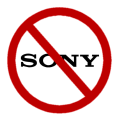Weekly News Roundup (18 April 2011)
I was hoping to bring you another monthly edition of the NPD video games analysis, this time for March 2011, but unfortunately, Sony, my long time nemesis, decided not to release figures for the PS3. This means I’ll have to wait until the many Boffins I’ve already sent out to return from retrieving the information – I really hope not too many of them die as a result. See, this is why the NPD was under pressure from game companies not to regularly release data, because otherwise it would have been much harder to hide a bad result. And so Sony not releasing the data, causing me to not have anything to write about, must mean the PS3 results were even worse than, well, the recent results (despite Sony claiming blah blah blah double digit growth blah blah blah for PlayStation hardware platform blah). This can only mean one thing, and that is that PS3 sales for March was negative – more people returned PS3s in March than people who actually purchased one #NotIntendedToBeAFactualStatement
So until my Boffins return, there’s no NPD analysis, and if none of them make it, then I’ll probably have to make up some figures. Come on Pachter, do your thang!
(In unrelated news, figures were also missing for my weekly Blu-ray/DVD, so no analysis there either. Also the above statement seems to suggest that Michael Pachter is a Boffin, which is not the case as far as I’m aware)
 Let’s get started with the WNR proper with some copyright news. My reference to a particular South Park episode might have gone unnoticed with my headline of Fighting Around The World, Piracy Edition, it was still interesting to find out just how much anti-piracy stuff was being debated around the world. Because, as everyone knows, the most pressing political, economical and social concern for countries around the world, and the most important of the “war on” wars, is in fact the war on piracy (and not even the African coast kind).
Let’s get started with the WNR proper with some copyright news. My reference to a particular South Park episode might have gone unnoticed with my headline of Fighting Around The World, Piracy Edition, it was still interesting to find out just how much anti-piracy stuff was being debated around the world. Because, as everyone knows, the most pressing political, economical and social concern for countries around the world, and the most important of the “war on” wars, is in fact the war on piracy (and not even the African coast kind).
So you have super-conglomerates forming in Australia to stop a country with a super huge population of almost as many people as Texas to stop the piracy problem that is costing the industry more than $60 per man, woman, child, in Australia, according to industry estimates. All of this because they couldn’t get a judge to go along with their plans to make ISPs responsible for the billion dollar problem, and so they’re trying to bypass the court’s decision and head straight to government lobbying and “exerting pressure” on the communications industry. Over in the UK, pretty much the same thing is happening, with ISPs defending their case in court, while copyright holders go crying to the government for assistance. The copyright movement these days seems to want a government run blacklist of websites that they deem to be against their interests, so while The Pirate Bay is a shoe-in for the list, other websites, blogs and services that may disrupt the entertainment industry’s attempt to hold on to their dying business model may also just make the list, with little avenue of appeal for those being listed.
Certainly something like this is being considered in Denmark, although since it actually costs money to run such a scheme, MPs there are suggesting that yet another industry should shoulder the burden of helping another industry avoid having to innovate. MPs there are saying that browsers makers, who they say have been so successful in blocking malware websites (yes, because hardly anybody gets malware these days and most people don’t even need to install security software #NotIntendedToBeAFactualStatement), should apply the same thing to websites not cooperating with the entertainment industry and the copyright lobby. Cue some respected law professor complaining about the trivial matter of freedom of speech and information, blah blah blah. And yes, a browser based blacklist, that surely won’t ever get bypassed, assuming people just don’t switch to one of the billions of other browsers available for free on the Internet. And this might even spur TPB to make their own browser, they can call it Internet Exploder or FireF#@(, which would not only get around the blacklist, but also randomly inserts torrent links into any web page you visit. That would be awesome.
And it’s not just respected law professors, it’s also senior advisors to EU judges that are warning against implementing the type of anti-piracy measures the copyright lobby has been pushing, namely ISP based three-strikes monitoring, and filtering schemes. Apparently, just because people, whose connections have been suspected of being allegedly used to download possibly copyright infringing material, or websites that may have participated in providing infringing content, but we’ll never be sure because the issue hasn’t been debated and decided in a court of law, might not have allowed the individual(s) affected to “challenge it or object to it”, or for the overall systems to have “adequate safeguards”, may all be an issue when it comes to human rights and stuff. I certainly don’t need (or have) a senior legal advisors to tell me that by giving power to the entertainment industry to arbitrarily add to a blacklist of websites they don’t like, that this somehow would get abused due to the lack of checks and balances and avenues of appeal, and that by turning a matter usually decided in a court of law into a simple matter of copying/pasting a new line into the blacklist spreadsheet, is somehow taking away people’s rights.
EA/Bioware proofed this week that pirated games are so much better than paying for the original by not properly maintaining their DRM authentication servers, and blocking legitimate gamers from playing the offline, single player Dragon Age: Origins game for 4 days. People who pirated game were unaffected. I could make my usual rant against DRM, but I think in this instance, nothing more needs to be said. Except I must question why is DRM still needed for a game that’s one and a half years old? Surely, anybody who wanted to pirate it would have done so already, and people who wanted to buy it would have done so already in one of the many Steam sales. Surely most of the pirating happens in the first few months anyway, and so that’s really the only when publishers need to use DRM (to ineffectively prevent piracy), so why not release a patch after the first three month to remove the DRM and avoid having to finance DRM authentication.
Or how about DRM that uses the reverse logic of most DRM schemes – how about making pirates jump through hoops, and giving legitimate customers a better experience? That’s exactly the point Garry Newman or Garry’s Mod tried to prove this week, when it introduced a bug in the pirated version of the popular Source game engine mod kit, asked if people were having issues with the bug, which then successfully identified and embarrassed all the pirates, while giving buyers “something to be smug about”. But thick skinned pirates won’t care, and might go around the Internet bragging about using pirated software, which means that DRM, other than the odd bit of fun, is not really effective at all. And poorly made and maintained efforts like the EA/Bioware one may in fact drive people to piracy, a point made by Good Old Game’s PR manager, Lukasz Kukawski. As I’ve always said here, if DRM has been proven to not work as intended, that is to stop pirated versions from being downloaded and used, then what’s the point? Game publishers are better off saving the large amounts of money they devote to developing, licensing and maintaining DRM, and use that money to make a better game, or even provide some physical collectable object in every game box (or redemption online for digital copies) – add value to purchases, not take away value, that’s all I’m trying to say here.
And it’s not just game purchases that needs added value (as compared to the pirated version). TV shows, one of the most pirated types of content on the Internet, is another example where value subtraction is being used by copyright holders in a vain attempt to squeeze every dollar from licensing deals. What I’m talking about is that it takes months for a TV show episode that’s aired in the US to make its way around the world, that is if it makes it across at all. Copyright holders expect more money to be paid for early viewing, and so overseas TV networks often take the cheaper route and delay broadcasts. And so, given people’s need today to have everything and have it now, most will have to source the content from illegal outlets. Yes, some episodes are available for purchase on iTunes or whatever, but why should have to buy something that’s free for people in the US, and not just on broadcast TV either, but via Internet outlets such as Hulu? And even those, like me, who pay subscription fees for cable/satellite TV, often still do not get new episodes aired until a week or more later, again probably as the result of greedy copyright holders and TV networks not willing to pay up. And this all causes piracy. UK’s Sky is trying to solve this problem by airing shows hours after the original US air date. Sure, the air time might be in some unholy hour of the night, due to time differences, but some Sky boxes capable of scheduled recording, that’s not a problem for many. I think it’s time for release windows to end – global release and airing times will help reduce piracy, as it saves people the trouble of downloading an inferior, even if ad-free, version (this is particularly true of HD broadcasts). Don’t subtract value from legitimate content by having stupid release windows – all you end up doing is to lose money to piracy, while gaining only a small percentage of that loss back through better licensing agreements).
YouTube’s copyright school? Almost not worth mentioning considering how ridiculous the whole thing is, and how it won’t stop copyright infringement on YouTube. Yeah, I’m sure a 4.5 minute video and a 4 question quiz, in which you only have to answer 75% of the questions correctly, will solve the YouTube piracy problem. Because obviously, people are only infringe copyright because they don’t know the law, not because they just don’t care.

In 3D/HD news, NPD has a new report out that tries to explain why people just don’t like 3D. And it’s not surprising to find that having to wear glasses is actually the most common reason for the 3D hate.
Last year, price was a major issue, but with 3D TV pricing dropping every day (the report found that, amazingly, 3D plasma TVs have on average dropped 59% in price!), having to wear glasses is now a bigger problem. And it’s a bigger problem than with cinema 3D, because cinemas use passive glasses, which are easier on the eyes for those that suffer from motion sickness, whereas active shutter passes can make someone like me nauseous in about 10 minutes of wear.
The survey did find that 3D Blu-ray was the preferred method of getting 3D content, ahead of 3D broadcasts, and that 3D awareness was higher than before. I’m still going with my prediction that 3D will be standard by the end of this year, and it will be marketed in the same way having Internet access on TVs is being marketed today (ie. not much marketing at all, and certainly not much of a price premium).
![]()
And finally in gaming, the big news of the week was that Sony finally decided to settle its lawsuit against George Hotz, aka geohot.
Geohot has been criticized for accepting the terms of the lawsuit, which dictates that he must not come near a Sony equipment if his intentions are not pure, but geohot explains this isn’t a problem because he’s boycotting Sony products anyway, and wouldn’t come near one even if it had a “hack me” sign painted on it. Still, Anonymous are not happy at the settlement conditions, and has planned more attacks on Sony servers.

I'm surprised this is the first time I've actually used this anti-Sony graphics in the WNR
A Sony boycott used to a lot more painful, because they’ve made some decent stuff over the years. But these days, it’s not too hard to avoid having to buy a Sony product, because they no longer make the best of anything, not TVs, not game consoles, and certainly not portable music players (how did they ever screw up the Walkman brand, I’ll never know). Blu-ray is about their only real success recently, although you can still buy the best Blu-ray equipment and still completely avoid Sony products.
Despite being too scared and embarrassed to release March PS3 figures, no doubt because it reveals that even the PS2 outsold the PS3 for that month (#NotIntendedToBeAFactualStatement), Sony were eager to boast about going over the 50 million mark worldwide for the PS3 (just shy of the Xbox 360’s total), and the 8 million Move controllers shipped since launch. The Move number doesn’t compare too badly to Kinect’s 10 million shipped figure, although it doesn’t compare too well either, considering the Kinect number (of 2 million more units) was reached a whole month earlier, despite being launched one and a half month later. In other words, 8 million Move controllers in just shy of 6 month, while Kinect shipped 10 million units in 4 month. Not quite the 5:1 Pachter was suggesting, but Kinect’s console attach rate is probably at least twice that of Move if you take into consideration two player gaming needs (you need two Move controllers for 2 player gaming, counted as 2 purchases, while the same can be achieved with a single Kinect purchase).
Oh, almost forgot what I was trying to post about, is that Netflix for the Xbox 360 now has Kinect support as promised. But it’s very much limited and not quite useful, but it’s free, so whatever. Hopefully, the Hulu Kinect interface will be less of a rush job.
Alright, that’s that for this week. Still no word from my Boffins, but I can probably guestimate the PS3 numbers using the vague statements Sony have made (double digit growth for the PlayStation family, which is probably closer to 10% than 99%, PSP also grew thanks to price cut, so have to take that into account and since Sony did not say PS3 sales grew in double digits, I also suspect it did not, but can’t confirm so will give Sony the benefit of the doubt) and the boastful statements they did not make (the PS3 obviously did not outsell the Xbox 360, and I doubt it outsold the 3DS as otherwise Sony would be screaming the news from top of the roof, or at least Jack Tretton anyway considering his views on the “babysitting” 3DS), which puts the PS3 numbers somewhere between 345,290 (10% up from last year) and 380,000 (the 3DS number). Elementary my dear Watson.
See you next week.



